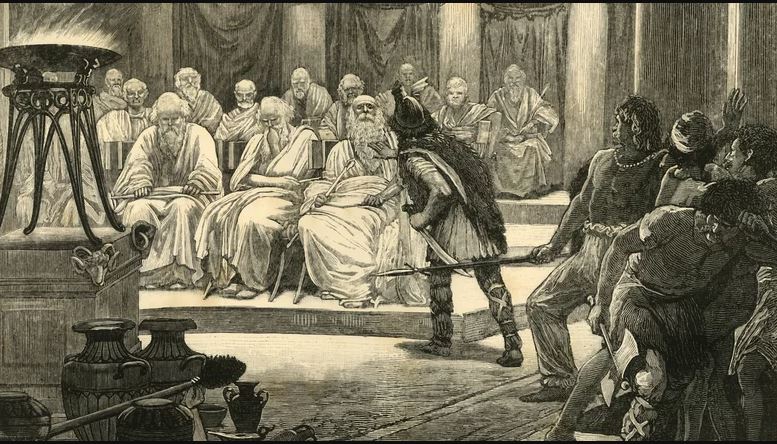Women throughout history fought for the right to wear pants, but that trend in female fashion did not widely catch on until around the mid-20th century, as Britannica notes. Of course, men were wearing pants long before that, as the alternative (or no pants at all) would be quite controversial in most cases. These days, pants are such a staple in menswear, in fact, that it’s easy to take them for granted. There was a time, though, in ancient Rome, when a man wearing pants was considered objectionable, as Atlas Obscura explains.
If men weren’t wearing pants in ancient Rome, then what were they wearing? Roman fashion for both genders can be summed up by the two “T’s,” or tunics and togas — tunics were casual, and togas were worn for fancy occasions, according to Fibre2Fashion. At its peak, the Roman Empire spanned roughly 2 million square miles, as History writes. Within that vast space were many different cultures, each one with its own style of clothing. It was this Roman point of view on certain colonized people — with whom the Roman Empire frequently fought throughout history — that led some Roman men to consider breeches to be distasteful.
GAULISH MEN WERE KNOWN TO WEAR BREECHES
Around 50 B.C. the Roman conquest of Gaul (modern-day France) at the hands of Julius Caesar was complete, as Britannica notes. In Caesar’s view, the native people of Gaul he encountered during his time fighting within the country were uncivilized. And what were they wearing? You guessed it, pants, which were most often made from animal skins, as the History of Yesterday notes. The same proved true of other Germanic peoples the Romans came across as they conquered Europe, many of whom were called “barbarians.” A famous Roman poet named Ovid recalled what one group of people he met looked like and what they wore, including trousers. “Only their faces” were visible, Ovid wrote.
Source: https://www.grunge.com/25722/10-things-assumed-true-american-history-arent/











